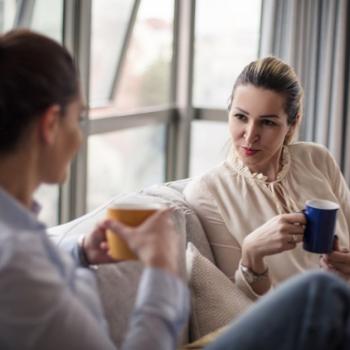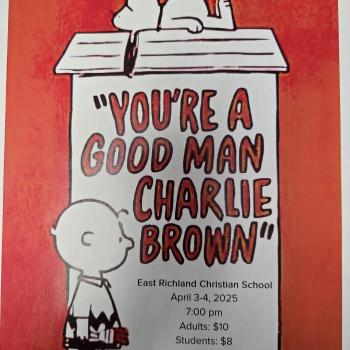As I looked at Peter huddled over his coffee, I heard his words again, his pronouncement from the night before, They think she has Down syndrome. I wanted to summon that ultrasound technician who had measured Penny's femur, her tibia and fibula, the fold of skin at the back of her neck. That woman who had traced Penny's picture on the screen and said, "See, the baby is sucking its thumb." I wanted to summon her and tell her she was wrong. I wanted to say, It is your fault that we are not prepared. It is your fault that we didn't know.
But knowledge wouldn't have made a difference. I could never have imagined the words mental retardation or birth defect being used in the same sentence as my child's name. It was as if having kids had become an equation: youth plus devotion to God plus education equaled a healthy and normal baby. As if taking a birthing class and reading baby books and abstaining from alcohol and praying all guaranteed certain things about our family. As if I were entitled to exactly the baby I had imagined, a little version of myself, a child who was verbally precocious and walked early and went on to skip kindergarten and excel in school. But there I was, in a hospital gown on a Saturday morning, and my child had Down syndrome.
Peter's phone broke the silence. He looked at it and said, "It's my brother." He rubbed his forehead. "I can't answer it. I wouldn't be able to say hello without crying."
Peter's younger brother Christian was at a wedding in New Orleans for one of their cousins. He knew Penny had been born, but he didn't know anything else. Peter glanced at the phone as it rang again. He pushed "Ignore call."
He looked up at me, his voice tight. "I feel like I've been swallowed by darkness. I can't . . ." He shook his head and turned away. "I can't . . ." He didn't finish the sentence.
A nurse brought Penny into the room. She was swaddled tight, and someone had added a large floppy bow to her standard-issue blue-and-pink striped hat. "She's adorable," the nurse said.
"Thank you," I murmured, receiving Penny into my arms.
"I brought you all some information. From the Internet." She handed a small stack of papers to Peter. "And I'm going to try to put you in touch with some other families who've been in the same situation."
"How often does this happen?" I asked.
"You're the third I've known where a Down's baby was born unexpectedly. That's in the past five years. So, not very often."
I worked on the math. How many babies were born each year in this hospital? Five a day? Ten? Thousands every year. Thousands. And once or twice, with an unknown extra chromosome.
After the nurse left, I said to Peter, "We've become those people."
"Those people?"
"You know, the exceptional ones."
There were plenty of unusual aspects of our life together-we didn't watch more than an hour a week of television, we were educated and lived in the Northeast and believed in Jesus, we had met in high school and dated through college and got married three weeks after graduation. Exceptional, I thought, with a hint of bitterness. I looked at Penny again, and the tone of the voice inside my head softened. Exceptional.
Peter reached out his arms. "May I?"
She was so little. He held her head in the palm of his hand and tucked her body close to his. Her toes reached the crook of his arm. He wiped his eyes. "Hello, beautiful," he said to her. It was the same way he had greeted me most days of our marriage, and it gave me a glimpse of what I had been hoping for, the chance to meet a new part of my husband once Penny was born. We had waited so long to have children, and we both had feared that a child would change our lives too dramatically. But one thing I had longed for was to see Peter as a father, to see the part of him that only Penny could evoke. I had looked forward to the ways she would give us to one another all over again.
The nurse soon returned for Penny. Her body temperature was still low, and she needed more time under a heat lamp. Peter and I were alone again, by design. My family had agreed to return the next day. We hadn't called any of our friends yet. It was as if we needed to test each other first, to say the words we were thinking and find out if they would disqualify us from our new roles as mother and father.
"I don't want to go back to Lawrenceville," Peter said.
"Me neither."
I closed my eyes. I wanted to run away. I had visions of putting Penny in her car seat and heading north to my parents' summer house. I knew the route well: up the turnpike and over the George Washington Bridge, onto the Henry Hudson and into Connecticut and finally, off the highway and onto a narrow road that wound its way back toward the water. Past the year-round residences and around the bend, the salt marsh in front of us. Into the driveway, up a small hill, and then seeing the Sound. The choppy gray water. The solitude. The open space.




